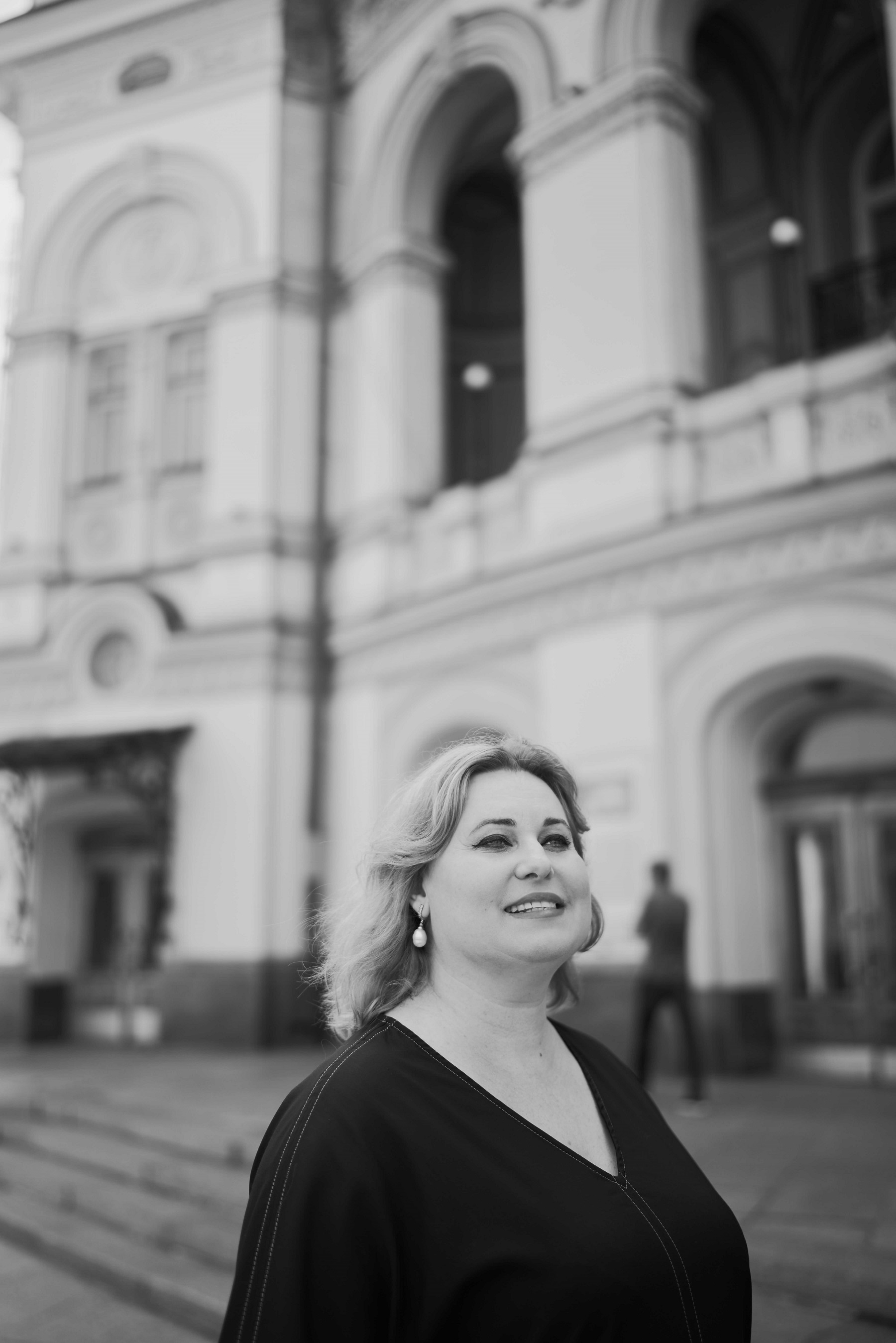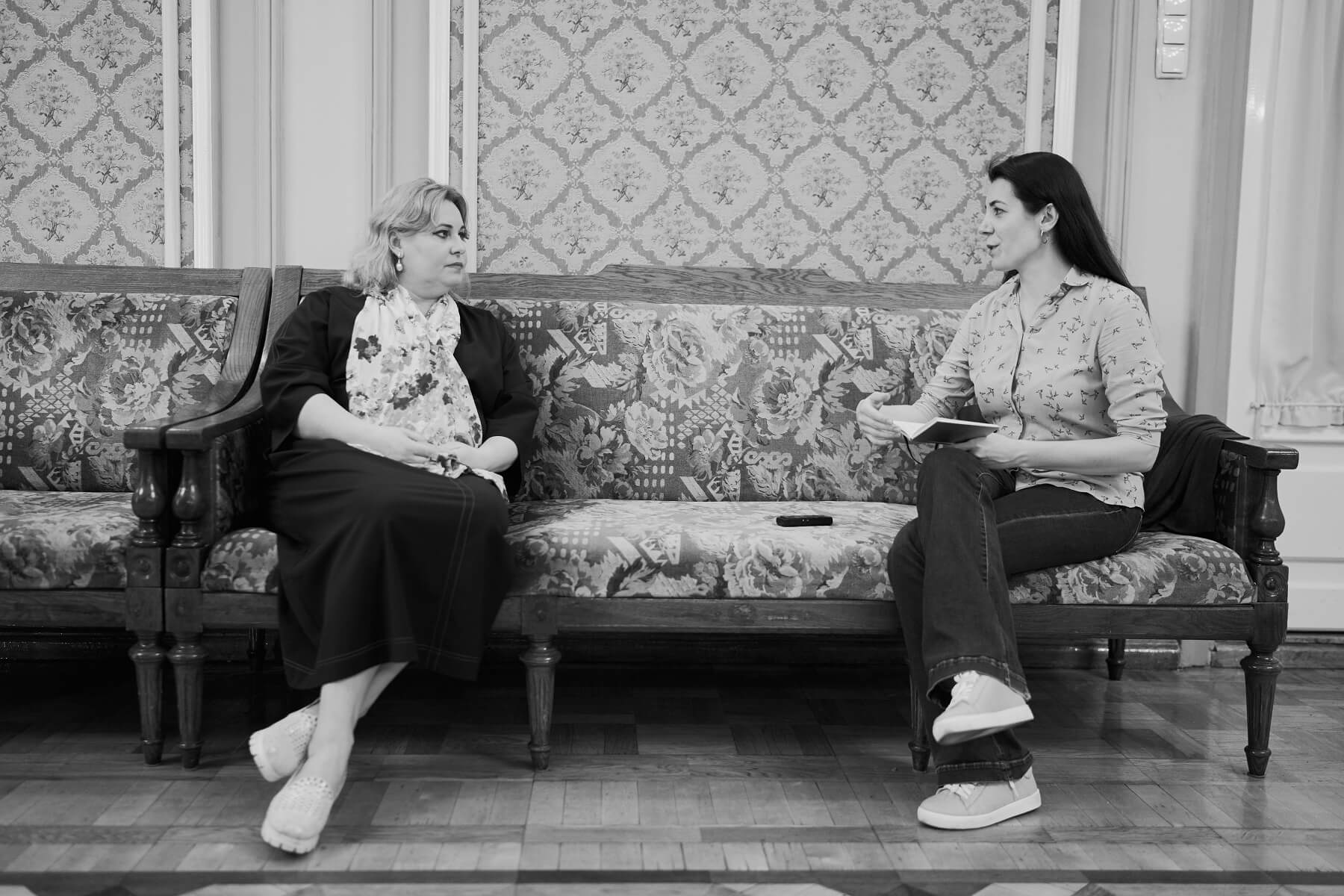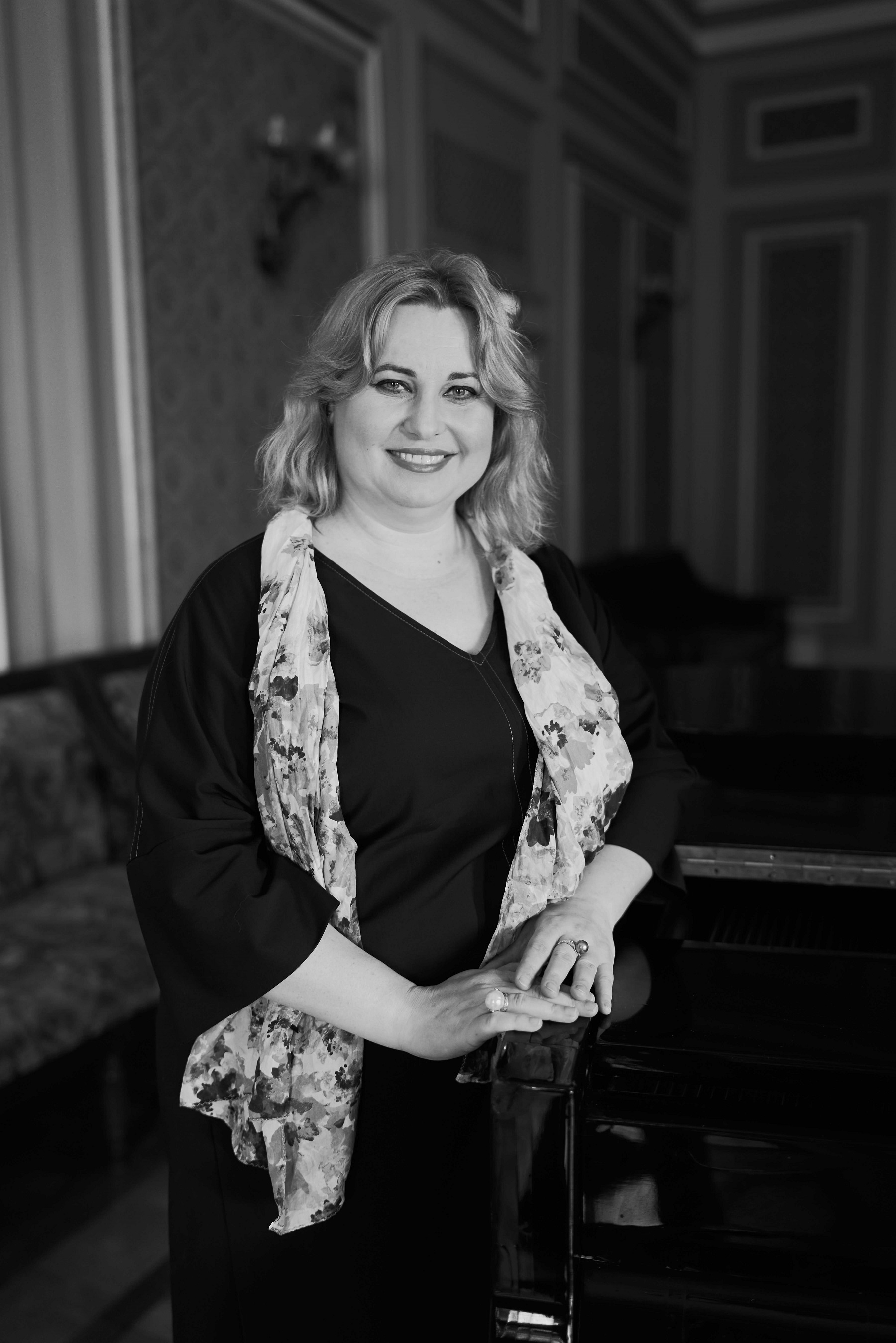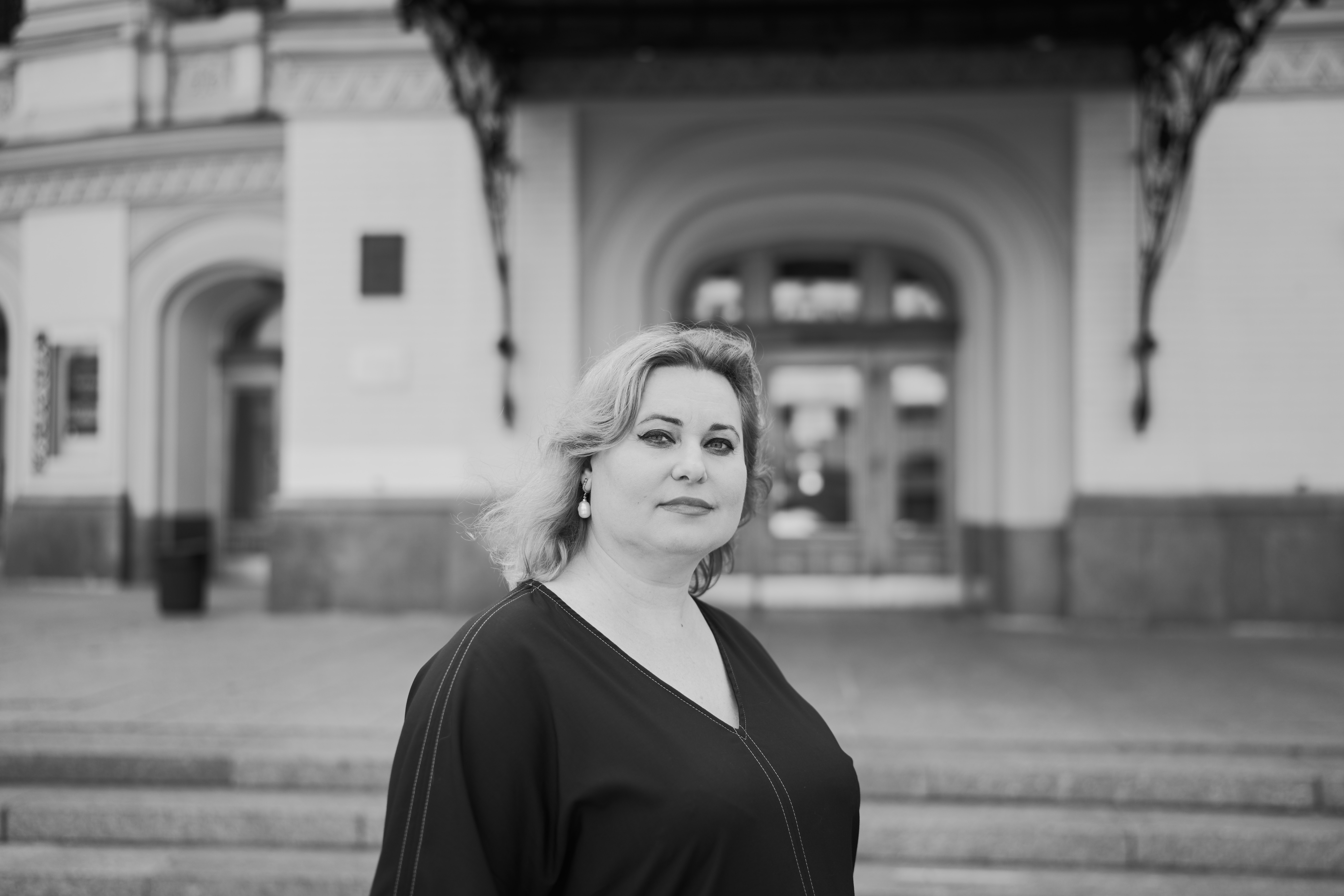Liudmyla Monastyrska is a soloist of the National Opera of Ukraine, laureate of the Shevchenko National Prize (2014) and People's Artist of Ukraine (2017). She sings at the most prestigious opera houses in the world: La Scala in Milan, Theater Royal Covent Garden in London, Metropolitan Opera in New York, and others. In 2015, for the development of ties with Italy, she was awarded the state award of the Italian Republic: the Order of the Stars of Italy. She is also the Best World Performer in the Role of Aida according to the Metropolitan Opera.
Thinking about the mission of an opera singer, I recall your words that you have already performed all the desired parts. In this case: what next? Enjoyment of interpretations?
— From the outside, it seems that if all the parts have been sung, then there is a ceiling, boredom, and you need to change your profession. But each role over the years is interpreted in a different way, realized and experienced on stage.
Is there a role that eventually became unpleasant for you?
— I used to sing Aida a lot, and now it's just not interesting to me. Aida is an errand slave. I do not like such images. This was probably influenced by my divorce from my husband 10 years ago. When a woman begins to resolve all issues herself and brings up children herself, rose-colored glasses fall off. I don't like women who depend on men, and this carries over to my attitude towards characters. So about the roles, I love characters with a core.
Similar to you?
— I became like this, and at the moment I feel good in this state. I was asked to sing Aida at the end of the last season at the National Opera of Ukraine. Of course, I agreed to sing it in my own theater, although I have been very reluctant to perform it for a long time. As a rule, I perform it abroad and, as a rule, for a lot of money. I have to think about my children and earn money, so I do not hide my attitude towards performing this role. Also, I do not hide my relationship with the money that I can get for it.

The director of the Metropolitan Opera called you the best Aida in the world. You say that it annoys you.
— It’s terribly annoying. First, this is his personal opinion. Someone might be proud, but I see this as a disregard for other roles. We invest a lot in each role. In addition, singers working abroad sacrifice communication with families and raising children. And how many marriages break up because of long-distance work! Therefore, I do not like such disrespect for other roles.
Moreover, it is a kind of disrespect for the rest of the performers, who may see this character differently. Every time, I myself can embody and convey the character in a different way. Or, when performing the same opera on tour for several days in a row, your voice may falter. And for some, acting comes to the forefront.
In one interview, you especially singled out the role of Manon Lescaut because of the inner strength of this main character and the insight she finds at the end.
— Perhaps this is one of the roles that goes through a huge evolution. The main character at the end is completely different than at the beginning. She is denied all senses due to exhaustion because she is with her beloved person for a long time in the desert. But she admits all of her past mistakes.
Puccini expressed this wonderfully in music. He worked in the direction of verism (from the Italian vero—"truthful"). This kind of music is really emotionally very true, and the plots of the operas are realistic. Today it is close to me. In some parts, there is a designation grido (shout—ital.) For example, at the very end of Pietro Mascagni's opera Country Honor, someone from the chorus usually shouts, "They killed Turrida." Or Tosca, killing Scarpio, screams, while tradition knows the two gestures with which she strikes (directly or from below). Directors use them in our time. Therefore, it is not surprising that I especially value those directors who make the staging as close as possible to the original score—both in music and in the plot.
Floria Tosca, Norma, and Manon Lescaut are the roles I love the most at the moment.
During the pandemic, the frequency of your performances under foreign contracts has dropped. Do you feel the rhythm of your performances is failing and do you have the need to sing in empty halls?
— Usually in the season I have a lot of contracts. There should have been five of them this season, but two of them have moved forward a year or two. So far, I have never had to sing in an empty hall—there were always people at least on the balcony. This is good because it is psychologically difficult to sing when there is not a single human being in the audience—there is nowhere to get emotional feedback.

In old interviews, you said that you liked to take Ukrainian folk songs as warm-up chants, as they are melodic. Was it a tribute to tradition or a visible effect?
— This moment has already passed. It is best to prepare with professional vocal exercises of the appropriate range. Folk songs often have a small range of one octave. Therefore, I sing Ukrainian folk songs for my own pleasure, if I can accompany myself.
It is important to protect your voice outside the stage and rehearsals—not to strain your voice or expose yourself to extreme cold. You need to get used to this lifestyle from the very first years when you decide to sing. But there is also the risk of breaking the voice during back-to-back performances of the same part or a short break between arias.
Is the language of the opera important to you?
— I am a supporter of performance in the original language. Each language has its own melody, and composers take this into account when superimposing words on music.
How long does it usually take to warm-up before a concert?
— I allow 15-20 minutes to prepare the voice. It is necessary to go on stage in complete confidence and with calm thoughts, therefore it is important that your breathing is normalized. Even one inappropriate memory that creeps into your head during a performance can knock out vocals.
The singers arrive about two hours before the performance. During this time, make-up, costume, and all other preparations are included. And if you need to put on a wig, then more time.
Can you influence the choice of costumes in terms of personal preferences? You once publicly said that you intended to ask costume designers to slightly raise the neckline in one stage dress.
— The main costume artist at the National Opera of Ukraine, Maria Sergeevna Levitskaya, is a Specialist with a capital S and a fan of her own work (and in our business, you need to be a fan of your own work). She takes into account all the individual characteristics of a performer. She is interested in costumes not only from different eras and countries but also social classes and groups. For example, in order to understand how to dress up Manon Lescaut in the second act, you need to know what women in France could wear in those days. However, to Maria Sergeevna, I can also express my wishes in terms of comfort—the depth of the neckline or the diversity of jewelry.
In a word, everything that you see on stage is a huge and painstaking work of a large number of people— each in their respective place influences the viewer. There is the orchestra with music and singers—as well as the performance and acting, costume designers, and decorators with color and entourage. It's important that everything works smoothly. After all, for example, the orchestra with its tempo directly affects the character of the vocal performance: I can change the tone, based on how the director feels it, and vice versa.
How dramatic can be the contrast between performances of the same part with different conductors?
— Even two performances of the same part, sung two days in a row, can be very different.

Recently, discussions about whether Ukrainian theaters should switch to “business mode” where one performance can go on for a week, or even a month in a row, have been a bit dormant. One gets the impression that our theaters have chosen to work on a repertoire basis.
— I consider the repertory theater to be the remnants of luxury, and this should be protected and appreciated. This is a luxury for both the viewer and the performer because we have a choice.
Modern residents, especially in cities, are happy people. I am a rural child, and in Soviet times I did not have the opportunity to go even to a drama theater. Therefore, I appreciate the fact that now there is constant access nearby to contemplate and join high culture, and in this spirit, I brought up children—to appreciate these opportunities, but also appreciate traditions and not slip into vanilla and outrage.
If you compare the methods of working on staging on tour, what do you like the most?
— It's no secret that huge investments are made in Western theaters, including private sponsors. At the same time, the state, in the total amount of financing of the theater, can allocate only 5%. They hire expensive designers and artists; they don't save on anything. And in the plot, for example, Assyria, the scenery is as close as possible to the original. All of our performers working in Western theaters have the opportunity to compare. There is still no law on patronage in Ukraine, and this has a profound effect.
Western directors often implement ultra-modern stagings which verge on shocking viewers. According to you, you do not like shocking for the sake of shocking. Where is the line for you?
— They love beautiful shows and provocations abroad. If it borders on insanity (and it often does), then I do not accept it. Austria and Germany are particularly fond of this: there is nudity or the choir comes out topless. I would never have gone to sing naked, and everyone knows that with such a staging I will simply leave. And in principle, they try not to undress the soloists.
Is it a question of self-respect for you?
— Self-respect, yes. But it is also about the degree of normality for creativity and moral principles.
When you said that the National Opera was moving in the right direction, did you mean finding a balance between modern opera and the preservation of traditions?
— The chief director of the theater, Anatoly Solovyanenko, is from a young progressive generation, and he thinks very correctly. It was not in vain that I said that we could compare the performances in Kyiv with the world-class performances. And I can confidently say that Nabucco and Floria Tosca staged by Solovyanenko are absolutely world-class, while the original score has been preserved as much as possible. I love Nabucco very much, although the role of Abigail is one of the most difficult in my repertoire.

You were very directly touched by the sad truth that in Ukraine you can get support only after gaining world fame. It seems that there have been some positive changes lately. Can you feel them?
— I'd like to say yes, but I'm not sure. We all love our land and our traditions. I can observe some positive trends. Perhaps this is already a consequence of the fact that those who have found themselves primarily abroad (like Oksana Lyniv or Kirill Karabits), by their example, have shown that we need to value our own people.
I will never leave Ukraine—this is my position and my feelings. But many young people start training at large Western theaters and often stay there because creative development for a young opera singer is an expensive process. Young people today have certain chances that at one time I did not have, but these opportunities, for the most part, are still abroad.
Does the status of an opera singer mean attachment to classical music in everyday life? What kind of music does Lyudmila Monastyrskaya listen to?
— In fact, I listen to everything, from chanson to jazz and just popular music. My daughter has her own musical project. She also took up arranging. Therefore, I am also aware of youth music. It helps to relax your thoughts.
Translated from Russian by Kateryna Kazimirova
Liudmyla Monastyrska is a soloist of the National Opera of Ukraine, laureate of the Shevchenko National Prize (2014) and People's Artist of Ukraine (2017). She sings at the most prestigious opera houses in the world: La Scala in Milan, Theater Royal Covent Garden in London, Metropolitan Opera in New York, and others. In 2015, for the development of ties with Italy, she was awarded the state award of the Italian Republic: the Order of the Stars of Italy. She is also the Best World Performer in the Role of Aida according to the Metropolitan Opera.